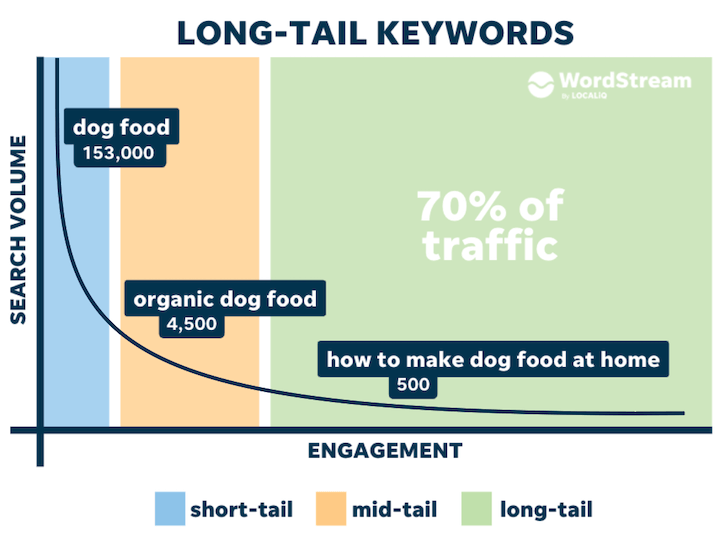There are hundreds of viable acquisition channels
A while ago, I did some research where I tried to identify which acquisition channels that worked for founders on IndieHackers.
You can see the top channels here.
What I've also noticed while doing my research, is a large number of long-tail acquisition channels; in other words, a large list of channels that were mentioned once or twice but still worked like a charm.
Here I'll explore some of those channels and finish this article with an important point of HOW to start thinking about acquisition channels in a way where you'll suddenly start seeing opportunities everywhere.
First, let's explore some "long tail" channels.
Job boards
A job board is essentially a directory of listings where various companies offer job positions.
Those companies have their contact details openly listed. You'll often see the email addresses listed as well.
DesignPac ($20k/mo) is a marketplace where you can "rent" vetted designers & developers.
They used job boards and those emails to get their initial users:
I collect email addresses of companies that have job openings for designers, developers, or marketers and send them pitch emails. Eventually we created a template for these, and so far it seems to be working.
Niche forums
These days when we say "online community", we often think of sites like Reddit or Slack.
What many of us forget is there are still thousands of web-based, niche communities that are alive and kickin'.
If you're old enough, you probably remember Warrior Forum, an online forum of people looking to make money online (just like us). This forum wasn't what it used to be, but it still has hundreds of thousands of users.

WP Courseware ($23k/mo) is a learning management system for Wordpress and they used a niche forum like the Warrior Forum to get their initial users:
We had never launched a premium plugin before so we decided to launch our product as a Warrior Special Offer on the Warrior Forum. We initially sold the plugin for $19.99, which included unlimited updates and support. Warrior Forum has a pretty big base and gave our initial traffic the boost we were looking for.
API Directories
API directories are big. Rapid API, one of the biggest API directories, has over 1.7 million users.
Exist ($14k/mo) is a personal analytics service to help you better understand your life. They had success with having a public API:
Something else that helped us out was having an API from an early stage, particularly for developers or users who like to tinker with their data. We have a small community of users who are creating their own integrations, setting up experiments or analysis of their data, and sharing tools created with our API among our userbase.
If you think about it, some of the biggest companies in the past 10 years were built because they had an amazing API.
Take Stripe an example. They started as one simple API and now they're a multi-billion dollar company.
YouTube/TikTok video mentions
Have you seen those videos where the intro is something like "5 software tools you won't believe exist"? There are literally thousands of those videos right now, and the reason is simple: They work.
Chessable ($6k/mo) is a science-based chess education tool and they had success with YouTube mentions
As we've grown and more authors have signed up to our platform, referrals and word of mouth have become our biggest source of growth. Other prominent YouTubers like IM Christof Sielecki of Chessexplained and Grandmasters like GM Alex Colovic often mention us. These referral sources are very valuable to us, and we are very grateful to all of our partners who have helped us grow.
Tactiq, a tool that transcribes Google Meet notes for students, got more than 150,000 users with TikTok via people mentioning them in videos.
Local magazines
Local media wants to feature up-and-coming stories of founders who were born and raised / are citizens of that particular city.
This is your opportunity to get some free reach, backlinks and early users.
Honey is a mobile app that allows parents to teach their children about money by assigning them chores to complete.
Honey got their early users via local media:
When we came to the US we reached out to a couple of local parenting magazines and they covered us, which gave us the best ROI, since it was free.
Honey targeted Memphis, which is a city of 652k people. It makes sense that smaller is better for this strategy; if you want to get featured in a NY magazine the competition is much greater.
Github
Admit it: What's the last time you used Github's search function to find a particular library?
A while ago I wrote an article on how app stores are powerful search engines. Here's an official stat from Apple:

I wouldn't be surprised if there was a similar figure for Github. MoonMail ($700/mo) is an email client which had success being on Github (they currently have over 1900 stars on the platform :
The most important source of "hype" for MoonMail has been thanks to the fact that we have open-sourced our tool (note: They have 1100 stars on GitHub).
I bet a large number of people found MoonMail via typing "email client" on Github. Github has over 100 million users and I bet at least 20% of them use the search box on the site regularly.
Slashdot
You can think of Slashdot as Hacker News 1.0. They're still incredible popular and allow you to submit stories for approval.
FireFTP is an FTP addon for Firefox and they got their initial users via Slashdot:
In September, a couple months later I released my work on Mozdev.org and posted an article to Slashdot (that's Hacker News 1.0 for you new geeks out there) and got a lot of traffic and interest that way.
Yelp Ads
Yelp is full of people who area ready to purchase. This is what the founder of MyClean ($750k/mo), a cleaning marketplace, noticed:
Right now, our paid ads focus on retargeting (customers who have found us before) and public review sites like Yelp. These customers have shown a clear intention to purchase, and quality is important to them.
Sponsoring meetups
If you're a bootstrapped founder, you're probably a bit short on cash.
So sponsoring a huge conference is not the best use of your money.
I found that founders who take the opposite approach and sponsor local events/meetups have better success with getting to their target audience.
rmotr ($17k/mo) is a remote programming bootcamp and they had success with sponsoring local meetups:
We've set different scholarship models with associations like WomenWhoCode and DjangoGirls, which has given us a lot of exposure to paying customers.
The long tail applies to acquisition channels as well
You've probably heard of the "long tail" in search engine optimizations:

The long tail is not so dramatic with acquisition channels but it definitely applies to this area as well.
I've seen people drive signups/purchases from all sorts of channels:
- Indie Hackers posts/comments
- Hacker News comments (I actually drove hundreds of signups to my mailing list from one Hacker News comment)
- A mention in a small meetup
- Ranking for an obscure, but highly targeted keywords on Google and/or bidding on that keyword in Google Ads.
Don't limit yourself to just a few channels: The most popular acquisition channels always go through the law of shitty clickthoughts. It's the "obscure" channels that not many people think about that can be effective for you as an indie founder.
How to change your thinking about acquisition channels
An acquisition channel is just a place/thing (a website, part of the page, a billboard, etc.) that can be viewed by one or more people:
- In cold email, it's the email message that gets viewed
- In Google Ads, it's that "sponsored" at in the search results that gets viewed
- In an Indie Hacker post, it's the IH page with the link that gets viewed
- In a conference, it's that person saying something in front of 100s of people that gets viewed
If you think about acquisition channels this way, you'll see that there are lot more acquisition channels than you think. And then your opportunities for promotion will be endless...
Is there a place on the internet (a page) that one or more people view that's related to your product? Then get the ball rollin' and find a way to put yourself out there.






More like thousands.
Thanks @zerotousers! Do you have any other examples of startups using the niche job boards channel?
Hey, Slashdot is still great! Didn’t knew! Thanks
The endless battle between the 80/20 and the long tail... :)
Classified ads can also be an amazing source for leads. People search for all sorts of things there.